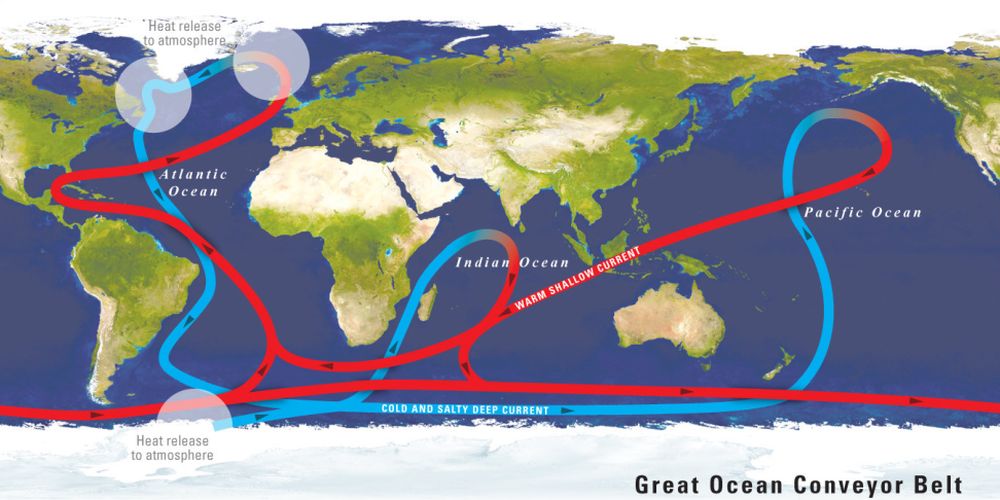Atlantic Ocean Circulation Stream at its Weakest in Last Millennium, Finds a Study
The changes in the environment are fairly evident these days – for better or for worse – changes in the climate, the altering season pattern, the rainfall circulations, etc. A recent study has discovered that the Atlantic Ocean circulation system is at its weakest in the last 1000 years. This system is moving more slowly than ever in the last 1,600 years and those are ominous signs.
The Atlantic Meridional Overturning Circulation (AMOC) – one of the earth’s major ocean circulation systems – redistributed heat on the planet and has a major impact on climate. The new study, published in the journal Nature Geoscience, concludes that the current, called the Gulf Stream, has been weakening since the nineteenth century and has reached its weakest state in recent decades. Interestingly, a similar study revealed the same conclusion in 2018.

The Atlantic Ocean circulation system is moving more slowly than ever in the last 1,600 years | Image: CBS News
Scientists believe that warming climate and melting ice are altering the balance of the oceanic waters and it is causing the current to move slower. The Gulf Stream flow moves across the eastern coast of the United States and is an essential part of the AMOC. The 2004 movie “The Day After Tomorrow” is loosely based on the premise of slowing ocean current, and ultimately stopping completely.
According to scientists, the circulation of the current has slowed at least 15 percent compared to 1950. However, an abrupt stop to the current any time soon is not likely. The oceanic current has weakened in an unprecedented amount in the past millennium, and if the trend continues, it could have devastating effects on the earth. Apparently, depending on global warming, the circulation could slow by between 34 and 45 percent by the end of the century.

Atlantic Ocean circulation system is at its weakest in the last 1000 years, slowing the current | Image: NOAA
The Global Ocean Conveyor Belt, which distributed some of the heat by ocean currents, while the rest of is redistributed by the atmosphere. This is a global system of currents that links the world’s oceans, moving in different directions. Research has revealed that the Atlantic part of the conveyor belt, the AMOC, drives the current system moving water ta 100 times the flow of the Amazon River. With the increasing ice melt from the Arctic, the currents are worryingly slowing down.
According to Andrew Meijers, deputy science leader of polar oceans at the British Antarctic Survey,
This indicates that the slowdown is likely not a natural change but the result of human influence. The AMOC has a profound influence on global climate, and particularly in North America and Europe, so this evidence of an ongoing weakening of the circulation is critical new evidence for the interpretation of future projections of regional and global climate.
Human-induced climate change has drastically altered the rainfall patterns, escalated ice melts, and increased the average temperatures of the planet. The slowing ocean circulation will affect the US East Coast with increased sea levels. This could also induce hotter heat waves and stronger hurricanes in the region.
Although, a bit extreme, the 2004 movie has shown the potential threats the world is facing amid the slowing oceanic currents. It still is not too late, but the lackluster attitude of the human race could prove fatal for the planet.


